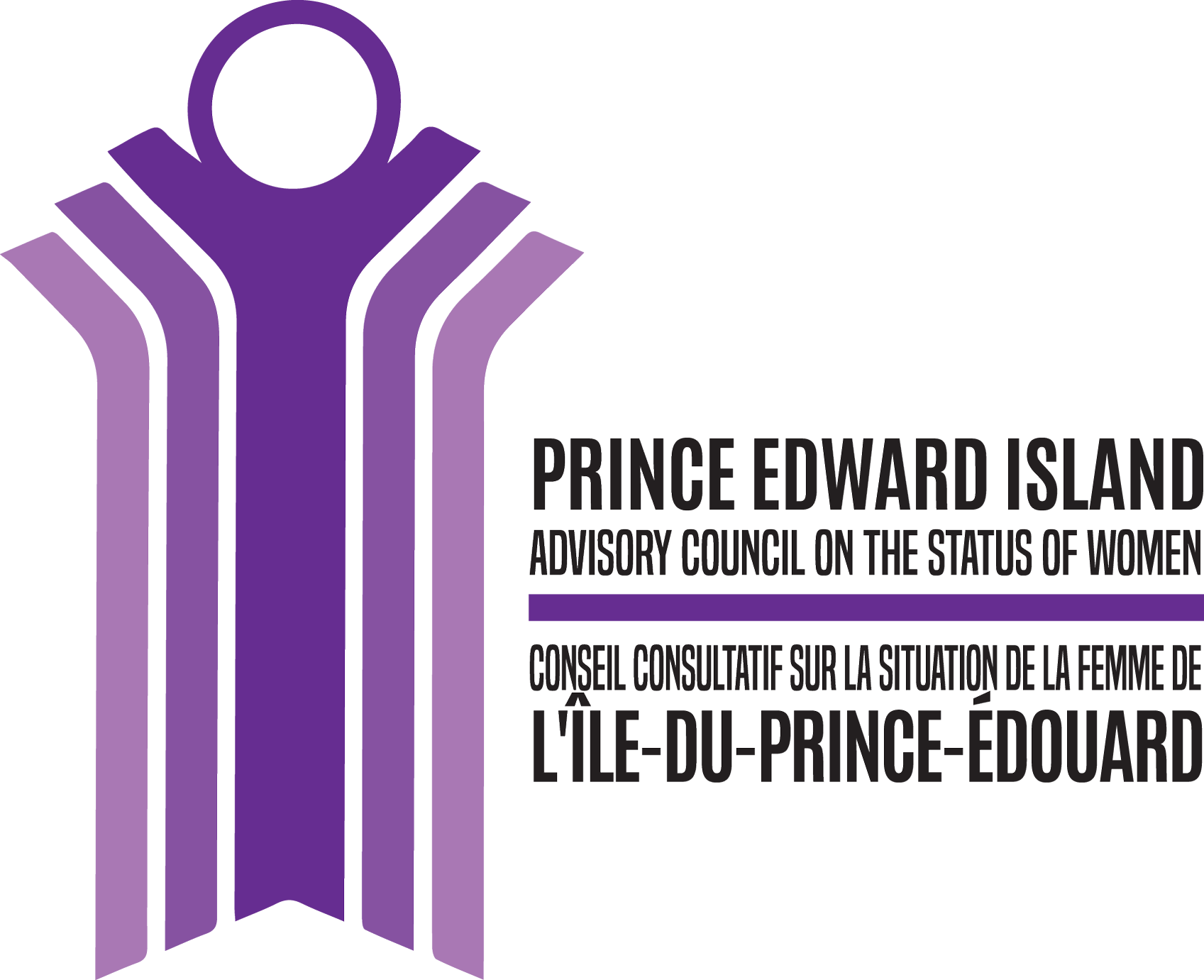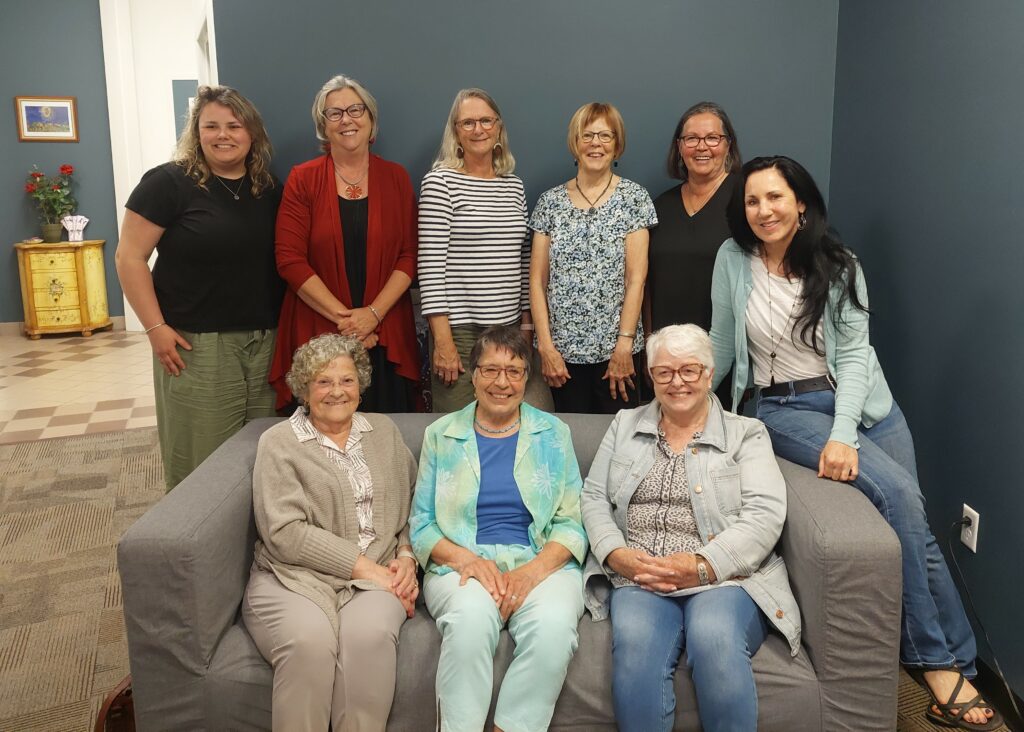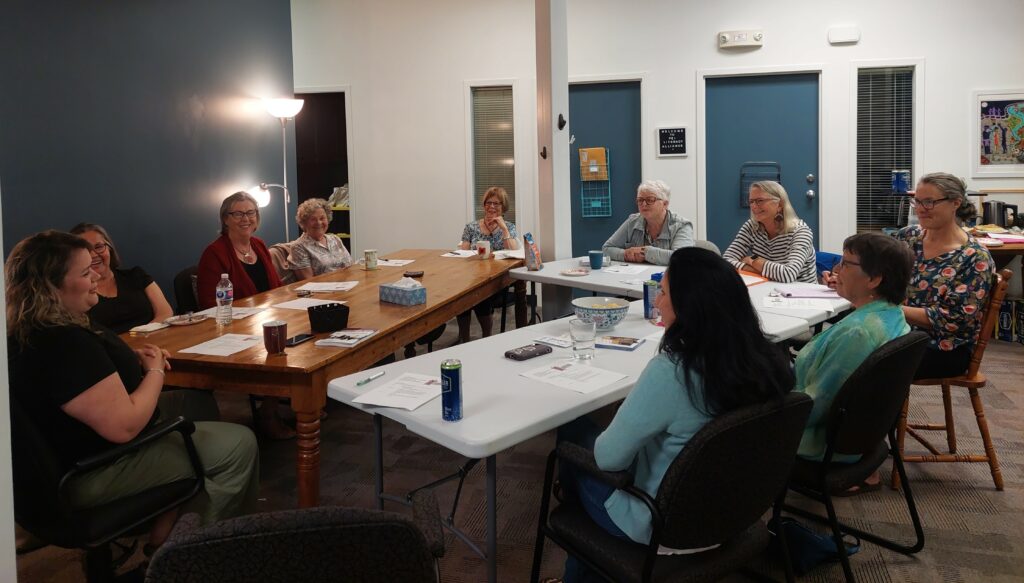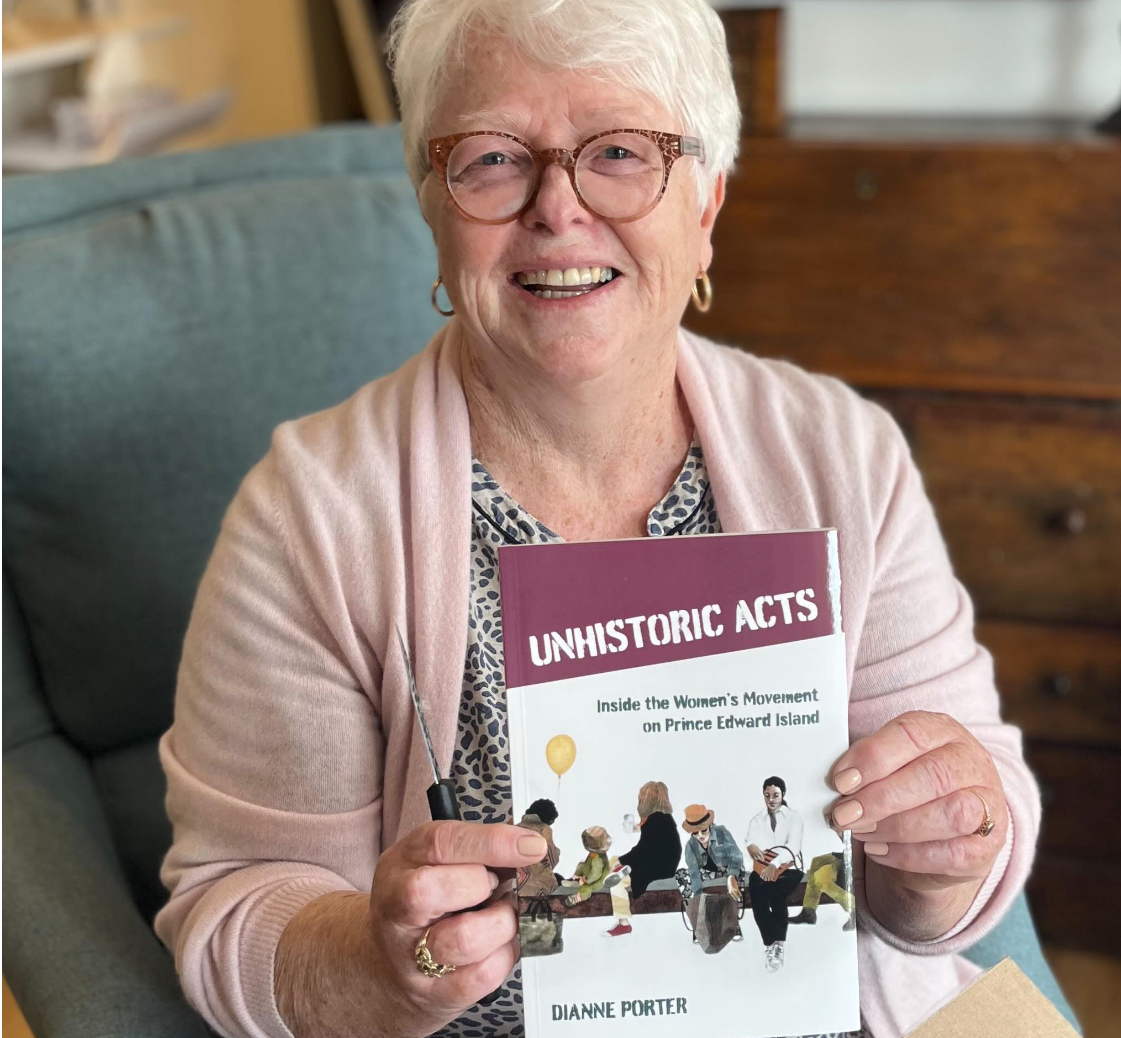The theme of the discussion this year was the many forms caregiving takes across family and community – caregiving across the lifespan; among family, friends, and neighbours; care for caregivers; and collective care.
“This year was my first time hosting this amazing group of women, and my first time meeting some of them,” Serena said. “I was amazed and humbled by their breadth of knowledge and experience.” She continued, “Current Council members wanted to hear from past-Chairpersons to broaden the discussion of caregiving and to help name caregivers’ needs and identify promising supports we can recommend to government.”
The participating past-Chairpersons talked about experiences they or people close to them had with many kinds of caregiving. Some of the experiences they talked about included unpaid caregiving to infants and children and youth; caregiving to adults living with illness and disability; caregiving to older adults experiencing age-related challenges; and caregiving to people at the end of their lives. They talked about the particular physical and emotional toll of seniors caring for their partners or for other seniors or both. They shared experiences they and their peers had with collective care, caring as extended family, friends, neighbours, peers, or volunteers with organizations. As one past-Chair said, “The women in our community take care of one another. It is beautiful and unbelievable.”
A well-functioning healthcare system – with seamless communications with caregivers, and with pathways to varying levels of care – emerged as an important way to reduce caregiver stress. As one participant said, “When hospital beds are full, it has knock-on effects.”
Affordable, accessible childcare and home-care services are perennial needs, and past-Chairpersons see current systems as under pressure. Participants expressed concern about increasing offloading of services that were once available as part of hospital care or community care onto individual caregivers, including personal care like diaper-changing for adults that compromises the autonomy and dignity of the person receiving care. They expressed special concern about the lack of specialized support for caregivers to people with cognitive challenges, substance use disorders, mental illness, or a combination of these.
Participants named some good models they’d like to see supported—such as peer-helping, neighbour networks, and mutual aid—and they named some policies and programs they wished people knew more about, such as the gerontological mental health team, legislation for psychologically safe workplaces and integrated palliative home-care services. They also talked about the importance of everyone having clear health-care directives: “Following a loved-one’s wishes is essential caregiving,” said one caregiver, while others reflected on how a clear health-care directive supports caregivers at challenging moments of responsibility and decision-making.
The need for long-term, systemic, and public supports in addition to a well-functioning health-care system also emerged from the roundtable discussion. Past-Chairpersons advocated for adequate affordable, and appropriate housing to address the current crisis; basic income guarantee; Island-wide accessible public transport; and improved training in conflict resolution skills. They spoke about the need to continue to support caregivers after acute crises, such as the pandemic or recent hurricanes. They also advocated for services for minority and systemically marginalized groups, including newcomers to Canada and francophones.
A theme that ran throughout the discussion was caregivers’ need for financial, emotional, and personal support and respite. The toll of caregiving on friendships, relationships, connections, access to nature, sense of belonging, and resources for self-care came out in many stories, along with the untold value of each of these supports.
Past Chairperson Dianne Porter proudly holding her book, Unhistoric Acts: Inside the Women’s Movement in Prince Edward Island. The book is published by Pownal Street Press.
“The wisdom and compassion in the group of past-Chairpersons was very inspiring,” Serena said. “Many ideas came up in the roundtable that hadn’t come up in our Council discussions yet. People with caregiving experiences, like the ones we heard around the table, need to be listened to and be heard. There is opportunity to improve support to unpaid caregivers in PEI, and past-Chairpersons’ insight will help influence recommendations and advocacy for positive change.”
A report on conclusions from the past-Chairpersons’ roundtable discussion will be shared with current Council members and also with the team putting together a January 2024 conference called “Creating Collective Care: Caring for Organizations & Each Other,” being planned by the United Way of PEI, the Community Sector Network, and the PEI Advisory Council on the Status of Women.
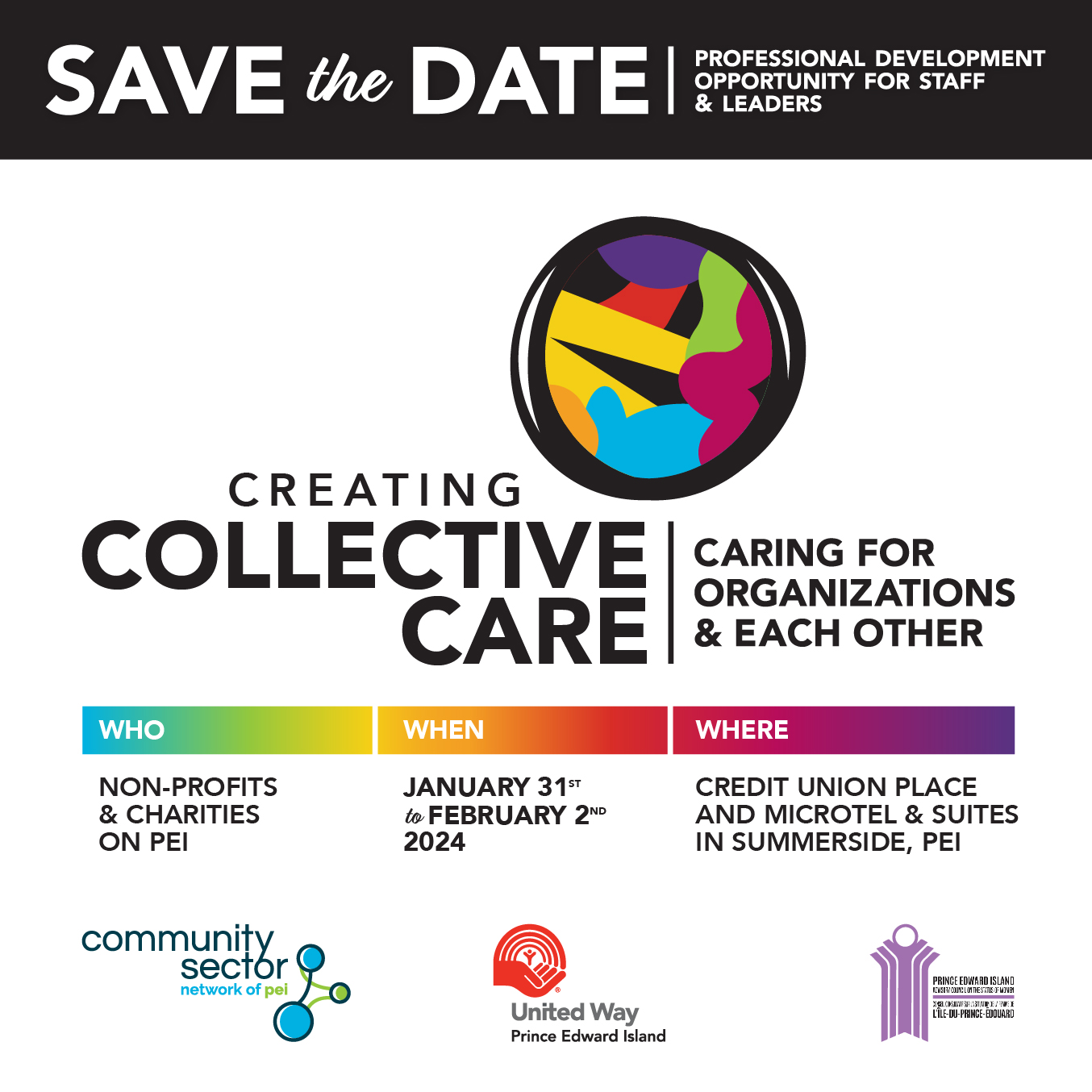
The Advisory Council on the Status of Women’s annual consultation with past Chairpersons used to be called our “Chairs Circle,” but we have given that name, logo, and legacy to a group of past Chairs who have incorporated a new not-for-profit with charitable purpose: the Chairs Circle for Gender Equality (https://ccgepei.wixsite.com/chairs-circle). These past-Chairpersons recognized the need for a new organization focused on gender equality and inclusion with the charitable purpose to advance education projects and initiatives in the community, with an intersectional, feminist lens and approach. The Chairs Circle intends to undertake projects and events that complement and support the work of existing organizations working for equality and inclusion in Prince Edward Island.
